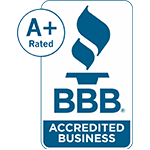A well-maintained driveway enhances the overall appearance of the property and contributes to its curb appeal. There are several benefits of asphalt driveways as well as concrete driveways. Here are their pros and cons:
Pros of Asphalt Driveways
1. Cost-Effective
Asphalt driveways are generally cheaper to install than concrete. In addition to affordable materials, the labour costs associated with installing asphalt driveways are usually lower because the installation process is generally quicker and requires less specialized equipment. Routine maintenance tasks for asphalt driveways are relatively simple and can be done at a low cost.
2. Quick Installation
Asphalt driveways can typically be installed quickly. Asphalt is delivered to the site already mixed and heated, ready for immediate use. The installation process can be completed in a day or two, depending on the size of the driveway and the weather conditions. Furthermore, asphalt usually cures and hardens within a 24-48 hours, making asphalt driveways a preferred choice for homeowners looking for a quick and effective driveway solution.
3. Flexibility
Asphalt is flexible, allowing it to better withstand the expansion and contraction that occurs due to temperature fluctuations. In areas with freeze-thaw cycles or significant temperature variations, the flexibility of asphalt driveways makes it less prone to cracking. Additionally, this flexibility allows asphalt driveways to accommodate slight movements in the ground caused by factors such as settling, tree roots, or soil erosion. This makes asphalt driveways a practical and resilient choice for homeowners.
4. Easy Repairs
Repairing asphalt driveways typically involves relatively simple techniques that can be done by homeowners or professional contractors. Small cracks and potholes can be filled with asphalt patching compounds or sealants, while larger areas of damage may require resurfacing with a new layer of asphalt. These materials are designed to adhere to the existing asphalt surface and can be applied in layers to match the surrounding pavement.
Cons of Asphalt Driveways
1. Maintenance
Asphalt driveways need to be sealed regularly. Regular maintenance may also be required to fill and seal cracks, patch potholes, and repair other surface imperfections due to the flexible nature of asphalt. The driveway may also need to be resurfaced or overlayed with a new layer of asphalt depending on its level of wear and tear.
2. Durability
Asphalt driveways tend to be more susceptible to the effects of weathering. Due to its flexibility, asphalt tends to be softer and less durable than concrete.
3. Less Aesthetic Appeal
Asphalt driveways offer fewer design options compared to concrete driveways.
Pros of Concrete Driveways
1. Durability
Concrete is inherently stronger and harder than asphalt. It can withstand heavier loads and is less susceptible to damage from vehicles, foot traffic, and other sources of wear and tear. Concrete driveways are less likely to develop ruts, depressions, or other surface deformations over time. While concrete driveways may be more durable than asphalt driveways, it is important to note that both types of driveways require regular maintenance to maximize their lifespan.
2. Low Maintenance
Concrete driveways are easy to clean and maintain their appearance over time. Concrete driveways typically require sealing only every 3 to 5 years, depending on the climate and level of wear and tear. A combination of less frequent sealing, resistance to staining, durability, and crack prevention makes concrete driveways generally easy to maintain. It is important to note that regular cleaning, occasional sealing, and prompt repair of any damage are still necessary to maximize the lifespan and appearance of concrete driveways.
3. Aesthetic Appeal
Concrete driveways offer a variety of finish options that can be customize to suit the homeowners’ preferences and design aesthetic. They retain their color and texture for longer, requiring less frequent maintenance and surface restoration to preserve their aesthetic appeal.
Cons of Concrete Driveways
1. Higher Initial Cost
Concrete driveways are typically more expensive to install than asphalt driveways. The materials used for concrete driveways, including cement, aggregates, water, and reinforcement materials, tend to be more expensive than materials used for asphalt driveways. Installing a concrete driveway is generally labour-intensive and time-consuming compared to asphalt driveways. It requires more specialized equipment and skilled labor, which can contribute to its higher installation costs.
2. Longer Installation Time
Concrete driveways often require more time to install and cure properly than asphalt driveways. The combination of preparation, mixing, pouring, curing, and finishing processes makes concrete driveways generally time-consuming to install.
3. Difficult Repairs
Repairing cracks and damage in concrete driveways can be challenging and costly due to concrete’s rigidity. Concrete repairs may require specialized materials and techniques to ensure proper adhesion and long-term durability. Additionally, achieving a smooth and uniform surface can be challenging when repairing concrete driveways, especially if the damage is extensive or located in a highly visible area.














